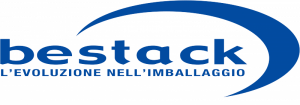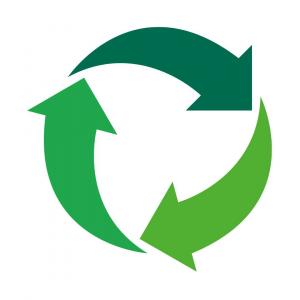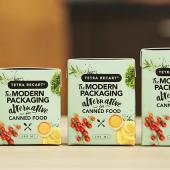Reactions and comments to the first green light from the EU Parliament on the PPWR
An "in progress" review of declarations made by supply-chain-related associations after the vote on 22 November by the European Parliament in plenary session.
After the approval of the changes to the Packaging Regulation (PPWR) on 22 November 2023 by the European Parliament, the output of comments and points of view from interest groups, stakeholder associations and other parties affected in various ways by the vote, which in the end downplayed the most orthodox and contested aspects of the Commission's proposal, finding, in particular, a balance between recycling and reuse, continues.
In detail, the following measures were approved: exemption from the prohibitions established by the text on the basis of life-cycle assessment and sorted waste collection: exemption for the "Horeca" prohibitions on the basis of sorted waste collection, bearing in mind that Italy produces a large proportion of recyclable glasses and materials; the definition of composite packaging, high-quality recycling and recyclability, thereby avoiding production stops to a whole series of product types.

Let’s start with the institutional positions of Europen, the association that represents the international packaging supply chain in the continent, recently interviewed by ItaliaImballaggio in the person of Francesca Siciliano Stevens of the Secretary-General.
The association recognises the Parliament’s wish to mitigate the distorting effects of the Single Market represented by a number of highly ideological measures in the desired path towards a net-zero technological transition which are not based on the scientific and objective measurement of the impact of packaging.
This position is reinforced by Stevens herself, who declares:
«The European Parliament has eliminated a number of arbitrary constraints in terms of banning and reuse, which do not represent a scientific solution to the problem of reducing waste and emissions. Numerous constraints still remain, however, which affect the value chain and undermine the Single Market due to a fragmentation that needs to be resolved with further efforts».
Francesca Siciliano Stevens’ observations are online on the Europen Linkedin profile

Coming back to Italy, among the most active countries in affirming the need to codify a scientific method for measuring the impact of packaging with respect to sensationalistic approaches to the green deal, the position of UCIMA, the Union of Wrapping and Packaging Machine Manufacturers is very clear, with its president, Riccardo Cavanna, declaring:
«Wednesday’s vote by the European Parliament on the new packaging regulation goes in the hoped-for direction. Common sense has prevailed. We are, however, waiting for the next steps, because the journey is not over yet » and continues, «For now we have to wait. There will be other decisive institutional passages, starting from the trilogue and the Council meeting scheduled for 18 December. The parliamentary battle is not yet over. We have certainly won some points; now we are hoping that common sense, reasonableness and an approach based on scientific data continues to prevail as it has in the last few days.
Ucima has always fought on the front line in defence of the “Italian way”, a model that has enabled us to become a leader in our ability to recycle waste. We’ve worked hard this last year, together with Confindustria and the other category associations in the supply chain. We submitted the requests of the sector to several members of parliament in the various commissions concerned with the implications of the Regulation. Together with Europen we organised with Brussels a number of targeted meetings with MEPs from all political sides. In this way - concludes Ucima’s President – we have demonstrated as a country that we know how to work as a team, and we’ve seen the results. We will continue to work together to defend a system that brings advantages from both an environmental and economic point of view».

And now let’s turn to Giflex, the Flexible Packaging Group, one of the first to express a point of view through the joint declaration with FPE, Flexible Packaging Europe, on the part of the president Alberto Palaveri:
«Giflex, together with Flexible Packaging Europe (FPE), has worked strenuously over the last few months to protect our sector and the results are evident. We are pleased with the improvements that have been made to the text approved by the European Parliament, such as the exemption of reuse for flexible transport packaging in contact with food. Critical areas still remain, however, regarding the grades of recyclability and safeguard clauses relating to recycled content, which we will work on in the next legislative steps, in the Council and subsequently in the Trilogue. The Giflex team's effort continues for the protection and sustainability of the sector ».
An in-depth study with a complete analysis is online

Next, it’s the turn of the Associazione Italiana Scatolofici CIS (Italian Box Manufacturers Association), which assigns President Andrea Mecarozzi the task of commenting on the position of the major corrugated cardboard packaging producers at national level.
«The changes approved yesterday in Strasburg, with a broad consensus, is an important step forward towards the search for the right balance between recycling and reuse, a crucial question for the cardboard packaging sector. It’s reassuring to note that the prohibition of disposable containers for food products was avoided, taking into consideration the sustainability of such packaging and its food safety, protected by strict regulations. We express great appreciation for the work done by the Italian institutions on this theme and for their ability to listen to all the parties in the paper and cardboard supply chain, which, like us, have worked so hard in the last few months to make an active contribution to the Regulation draft which would have strongly impacted a sector that has always worked for high levels of sustainability and circularity. We will continue to actively cooperate to promote sustainable practices in the packaging sector, contributing in this way to the well-being of the environment and our communities».

From Italy, let’s turn our attention once more to Europe with the point of view of European Bioplastics (EUBP), which focuses its activity on the use and exploitation of bioplastics as a means to reach ever more demanding recycling goals and brings together industrial stakeholders involved in the bioplastic production supply chain.
The association welcomes the more moderate approach taken by Parliament, while expressing disappointment for the role attributed to bioplastics in the process of reducing emissions. As Roberto Ferrigno, head of European affairs for EUBP underlines:
«Today’s vote can be seen as a first step in enabling the EU to achieve, by 2030, the objective of generating at least 20% of the carbon used in chemical products and in plastic materials from non-fossil sources. It’s an objective not yet achievable, especially now that Parliament has decided not to support the role of bio-based plastics in the achievement of recycled content goals. We believe, in fact, that bio-based plastics can and will be able to contribute to the transition towards a circular economy, storing and reusing carbon dioxide ». This is echoed by the General Manager Hasso von Pogrell who affirmed: «EUBP invites the co-legislators of the EU to draw up and adopt a regulation on packaging and packaging waste that allows for the further development of technologies for the production of zero-emission biobased polymers, as enabling factors for the European Green Deal».

From the bioplastic industry to the corrugated cardboard industry, with the views of FEFCO - European Corrugated Packaging Association –
which supports the Commission’s objectives regarding reduction of the environmental impact of packaging and of waste, reinforcing the functioning of the internal market in the revision of the PPWR and welcomes the vote in Parliament.
According to FEFCO, in fact, the vote has set out the path for increasingly sustainable packaging, maintaining the existing waste management system and strengthening the competitiveness of European businesses. The invitation now goes to the Council to maintain the same orientation, in order to guarantee that the final version of the PPWR keeps a complementary approach between recycling and reuse that is capable of guaranteeing competitiveness by harmonizing the internal market. Corrugated cardboard is one of the most recycled forms of packaging in Europe, with a recycling rate higher than 90% and an average recycled content of 89% coming from a renewable source. These concepts were reinforced by Eleni Despotou, General Manager of FEFCO, who declared:
"The corrugated cardboard industry is committed to supporting the objectives of the PPWR and to promoting circular packaging options to the benefit of the environment and of society ".

Then it's the turn of a food sector that calls primary packaging into question. It’s the fruit and vegetables sector which, with the European association AREFLH – Assemblée des regions europeennes fruitieres, legumieres et horticoles, (the Assembly of European Horticultural Regions) welcomes the proposed amended regulation of the initially hypothesized restrictions.
Among the many, in particular, the one regarding packages under 1 kg in weight, which would have had a big impact on the system’s export capacity and on the shelf-life of fruit, vegetables and legumes. The association declares to have acted at various levels to raise awareness among Commissioners of the needs of the European fruit and vegetable system, as pointed out by the president, Simona Caselli and by the vice-president Jean-Louis Moulon who affirm:
«The vote was a big victory that makes us very satisfied, as it gives the single market a clear regulation that will permit the fruit and vegetable system to achieve significant results regarding the reduction of packaging and waste, while maintaining high standards of food safety and therefore reducing waste. Our exporters can today work with clear rules, maintaining a strategic objective for our sector, represented in both the reduction of packaging and in the search for new materials able to improve the environmental impact, increase shelf life and reduce food waste».
Reactions are continuing with the return to Italy, where two important sectors linked to the paper and food world expressed a favourable opinion on the orientation of the European institutions, albeit seen from two very different markets.

In the press release, Assocarta, Assografici SLC-CGIL, FISTEL CISL, UGL, ULCOM UIL express appreciation of the work of the European Parliament and, in particular, the Italian MEPs, who introduced important improvements, definitively approving the Hon Ries’s Report regarding the packaging review (PPWR). According to the stakeholder group, in fact, paper is recognised as a cornerstone of the European circular and social economy, effectively enhancing virtuous employment in the sector, the renewable materials produced and recycling that optimizing the life-cycle.

Here are the reactions from the national food industry market, echoing the general acclaim through the words of the president of Federalimentare, Paolo Mascarino:
“The Euro Parliament’s vote on the Packaging and Packaging Waste Regulation (PPWR), which exempts Member States that have achieved a recycling rate of 85% from reusing packaging, embraces Italy’s line of reasonableness, common sense and scientific evidence, opposing the ideological vision that emerged in the Environment Commission: data, numbers and analyses supported its position, thus avoiding incalculable damage to our country that would have impacted on the production system. Having found a balance that does not penalise our sorted waste collection industry in favour of reuse is certainly a victory for Italy and for the entire sector which has been able to count on an excellent team effort that saw institutions, businesses, industrial and social systems working together towards a common goal. A negative impact on employment and the economy, which would have eradicated the virtuous path taken over more than twenty years, in which Italy has become a recycling leader, contributing to the growth of the agri-food supply chain which, it should be noted, is worth over 30% of the Italian GDP, has therefore been avoided”.

It’s now the turn of the Bestack Consortium, founded by International Paper, DS- Smith Packaging and Ghelfi Ondulati under the aegis of the Gifco (Gruppo Italiano Fabbricanti Cartone Ondulato - Italian Corrugated Cardboard Manufacturers Group) trade association which represents over 70% of the Italian fruit and vegetable production.
"For a consumer that buys a fruit and vegetable product, the packaging is secondary” affirms director Claudio Dall'Agata “but important for communicating, protecting and extending the life of fresh products and for reducing waste. I don’t agree with those who say that it’s the type of packaging that makes the product more or less ecological. Authoritative scientific studies attest that 70% and over of the environmental impact of a fruit and vegetable product derives from how the soil is used and how it is cultivated. Waste accounts for 9%, packaging for 5%. Sustainability, therefore, is a very broad concept, which starts from the field and ends with consumption. Our packaging sector needs to learn very important lessons from this situation, that is, not to just look at its own backyard and not to wage a war between materials. It’s great to talk about reuse, about less impacting materials, about 'intelligent packaging' which limits waste, but to the consumer we have to offer fruit and vegetables in the best possible conditions with all the parties in the supply chain playing their part ".

The emphasis of the Comieco Consortium is also on recycling, which in a statement on the vote highlights how the sustainability results of the Paper District are confirmed as strategic for the circular economy, as confirmed by the numbers of the paper industry supply chain which in 2023 consolidated its position with over 3.6 million tonnes of paper and cardboard collected and recycled, equivalent to over 80% of the total and 3.5 million tonnes of CO2 emissions avoided.
The results far exceed what was required by the EU objectives to 2025 and are close to the achievement, already this year, of the 2030 target fixed at 85%. They are numbers that the European Parliament was not able to ignore at the vote on the PPWR, putting recycling in the centre of Green New Deal policies with a view to the interinstitutional negotiations with the Council and the European Commission.
The European Parliament (EP), it can be read in Comieco’s detailed statement, has, in fact, approved an exception for binding reuse targets in the event the 85% recycling target is met, also involving composite cellulosic packaging, that is, packaging which, according to the new definition introduced by the EP, consists of more than 10% non-paper material, such as, for example, drink cartons.

Remaining in the world of food, the comment by Pro Food, the group member of Unionplast, is very pertinent, yet positive, which in a statement places the emphasis on the affirmation of a scientific approach as opposed to an ideological one.
While agreeing with the absolute need to avoid forms of overpackaging, Pro Food points out how the Italian model is, in the end, one of the most credible and practicable approaches in the search for a complex balance between production needs and sustainability. Recycling, in fact, has returned to centre stage as a solution to be affirmed and spread also in European countries that have focused less on this industrial supply chain.
According to the group of packaging producers there is still much to do for fresh products; this is why, in working together with the Italian Government there is the hope, as can be read in the statement:
“In the work of the Council of the European Union first, and then in discussions between the Council, Parliament and Commission, that Italy can consolidate its various positions, continuing to support its interests and defend the sustainability and quality of our food and beverage production, distribution and consumption systems (and management of the relative waste): models of excellence envied abroad, in which packaging plays a fundamental role. This also applied to disposable plastic packaging, much maligned but actually today increasingly used, recyclable and, in many cases irreplaceable.”

The reflection offered by Comic’s EuPC, European Plastics Converters and, in particular, the general manager, Bernard Merkx, is of a different tenor.
As much as the shared goals of the neutrality of packaging and the circularity of materials create the level playing field Europe needs, the note states that the Parliamentary vote adopts a still too negative approach to plastic, and to the objectives of circularity that could be achieved if it was properly exploited.
The European association of converters notes the retention in the parliamentary document of many amendments excluding plastic packaging originally present in the Environment, Public Health and Food Safety Committee’s report.
This is an aspect that, in the converters’ opinion, continues to consolidate the emotional approach towards this material, with measures such as special targets for the reduction of certain types of plastic packaging, exceptions for composite packaging from the recycled use quotas, prohibitions on disposable stretch films, etc.
According to EuPC, the absence of a rational support for a plastics processing and recycling industry demonstrates the poor consideration of the European institutions towards a sector which has constantly worked to improve sustainability, recyclability, circularity and the performance of its packaging offer.
EuPC, finally, states that in the PPWR solutions such as systems based on credit and precise exceptions should be excluded, in order to allow the plastics processing and recycling industry mainly composed of SMEs, and their customers, to adapt and support the natural growth of the high-quality recycled materials market.





















